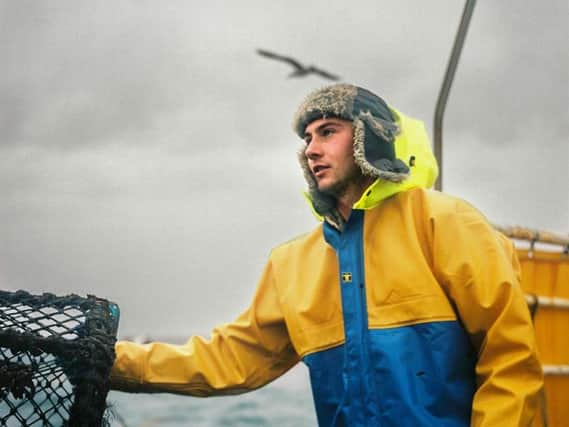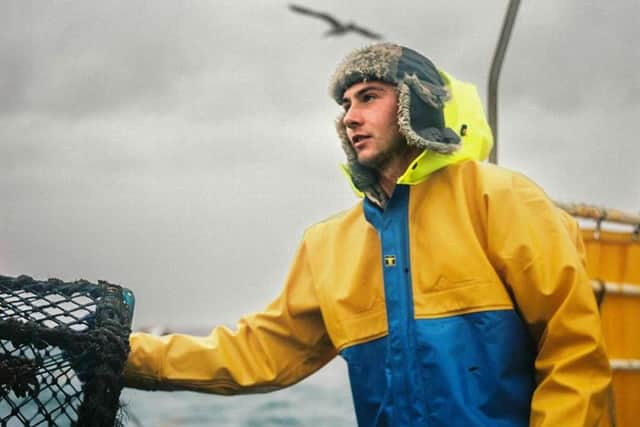The long haul: Portraits which tell the story of our fishing heritage


Having decided to focus her lens on the fishing industry, Joanne initially got in contact with the Fisherman’s Mission. The charity supports both active and retired fishermen and it was through them that she was put in touch with Orkney Fisheries Association secretary Fiona Matheson.
“Fishing is a treacherous business,” she says. “More lives were lost at sea in the first six months of 2016 than in the whole of the previous year. The Fishermen’s Mission claims that an average of 15 fishermen a year are killed or seriously injured each year yet, despite the dangers, fishing remains a way of life for many and I wanted to understand their motivation.
Advertisement
Hide AdAdvertisement
Hide Ad“When you visit a lot of port towns, people tell you about how the fleet once thrived and how bleak the future looks now, but that isn’t the whole story. In the last 50 years, fishing has changed beyond recognition, but the more time I spent in these places the more I wanted to capture the people who had kept it going and in Orkney I did discover that there was a different, more optimistic story.”


Two big shellfish factories on Orkney are the main employers in the islands. They have a healthy fleet and fishing in the area is run as a co-operative, so the fishermen have the benefit of being part of a collective, but can still operate independently.
“The association also works closely with researchers to maintain a sustainable fishing ground. The area is also home to Europe’s largest lobster hatchery, which releases over 100,000 lobsters annually, but what no one knows is what’s going to happen next,” says Joanne, referring inevitably to Brexit.
It was a word she heard many times on her travels which took her from Scotland to Cornwall via the Yorkshire coast she knows so well.
Advertisement
Hide AdAdvertisement
Hide Ad“The older trawlermen remember the Cod Wars and most of them suspected that the impact of Brexit will take so long to be felt that they will probably be retired, but they were worried for the next generation.”


As part of her time at the coast, Joanne has compiled a separate collection of images focusing on the women whose lives are also tied to the fishing industry.
“I have met some fascinating women, like Sarah Silverman from Bridlington who owned a hairdressers. When the salon was damaged in a fire she had to find another job. That’s when she decided to go to sea with her partner Dylan. I asked her why there aren’t many women working in the industry compared to places like Alaska where no one would bat an eyelid and she told me that out there there is nothing else, it’s fishing to survive.
“Here there are choices, but women have always been involved in the UK fishing industry in some way from the handful of commercial skippers to those who work in seaside fish and chip shops.”
Advertisement
Hide AdAdvertisement
Hide AdJoanne’s moving series of portraits include women like Angela Harrison who is a fifth- generation fishmonger based in Cornwall.
“She told me how she and her sister didn’t grow up with a lot of money but with a lot of scallops, crab meat and fish in their fridge. Now they are at the fish market every day and they said it is still quite a man’s world. Not only do they have to be tough on the outside, but they also have to be fairly physically fit as they carry 25kg boxes around and scrub and fillet all their own fish.
“Each of these women has a story to tell. Take Charlotte Boddy who moved to Whitby from Manchester when she was six years old. Growing up she suffered a lot of bullying and from a young age going out on the water was her way of letting off steam. As she said, ‘some people might go boxing, some people might go running, but for me it was being out on the open water’. She is now one of the students who have been trained at the town’s fishing school and the thing that gave her hope has now also given her a career.”
Joanne is still on the lookout for potential subjects and says it’s people like Annie Gilbert, who along with her husband Ian fishes out of Poole in Dorset on a boat called the Happy Hooker, who perhaps best sum up the dogged spirit which underlies today’s industry,
Advertisement
Hide AdAdvertisement
Hide Ad“It was Ian who asked if I would like to crew for him,” she said “I absolutely loved it. Since then I have only missed a couple of days fishing in 13 years. The worst bit is the occasional very long days for very little return, the days when the nets fill up with crabs and weed.
“I’ve always liked the rollercoaster rides, so I quite enjoy the rough weather. As for not having a toilet on board, I am an outdoors girl and I’m not shy.
“I see beautiful sunrises and sunsets, dolphins swimming and playing around our boat. I get to make a living doing something I really enjoy.”
And so too it seems does Joanne.
Joanne will be giving a talk on her work for the not-for-profit organisation Miniclick at the Brunswick in Leeds at 7pm on September 27. For details go to miniclick.co.uk